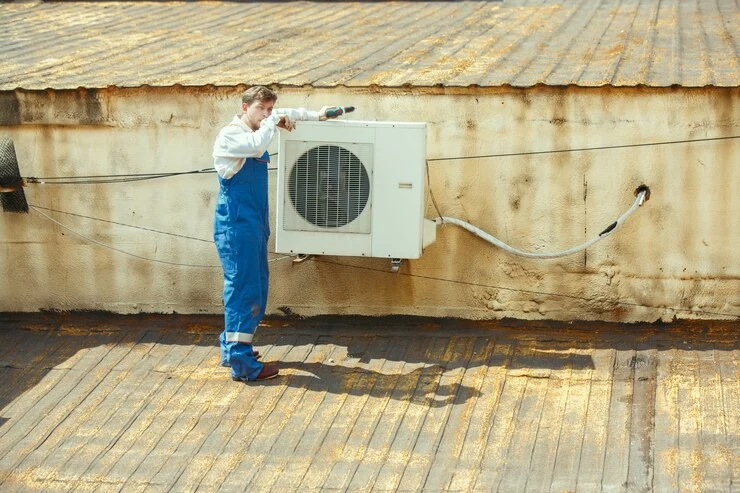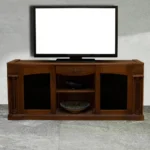Freon, also known as R-22 refrigerant, was commonly used in air conditioners for decades. However, due to environmental concerns, the use of R-22 has been phased out, leading many homeowners to wonder what steps they should take if their air conditioner still uses this old refrigerant. If you have the old Freon in your air conditioner, this post will provide you with the information you need to navigate the situation.
What Is Freon (R-22)?
Freon is a chlorofluorocarbon (CFC) that was once widely used in refrigeration and air conditioning systems. However, over time, it was discovered that R-22 contributes to the depletion of the ozone layer, leading to its gradual phase-out.
Why Was Freon Phased Out?
In 1987, the Montreal Protocol was established to phase out substances that deplete the ozone layer, including R-22. By 2020, the production and importation of Freon were completely banned in the U.S. This means that if your air conditioner still uses Freon, getting a recharge could be expensive and difficult.
Environmental Impact of Freon
Freon not only harms the ozone layer but also has a significant global warming potential (GWP). This is why it was replaced by more environmentally-friendly refrigerants, like R-410A, which is safer for the environment.
How to Know If Your AC Uses Freon?
Wondering whether your air conditioner uses Freon? Here’s how you can check:
- Check the label: Look at the unit’s manufacturer’s label on the condenser. If it indicates R-22, your system operates with Freon.
- Consult your owner’s manual: The type of refrigerant used will be mentioned in the product specifications.
- Age of the unit: If your AC was installed prior to 2010, it probably uses R-22. Systems installed after this date typically use R-410A.
What Are the Signs You Need a Refrigerant Recharge?
If your AC uses Freon and is running low on refrigerant, you’ll likely notice some key signs:
- Poor cooling performance: Your AC may struggle to cool your home, especially during hot weather.
- Hissing sounds: If there’s a refrigerant leak, you may hear a hissing or bubbling sound near the outdoor unit.
- Higher energy bills: When the refrigerant is low, the system works harder to maintain temperature, leading to higher energy costs.
If you’re experiencing any of these issues, it’s important to address them as soon as possible.

What Are Your Options If You Have the Old Freon?
If your air conditioner still uses Freon, you’re faced with a few options. Here are the most common solutions:
Retrofit Your System
Some air conditioning systems can be retrofitted to use modern refrigerants, like R-407C or R-438A. This process involves replacing certain components within the system so that it can handle the new refrigerant. While retrofitting can be a more affordable option than replacing the entire system, it’s essential to consult an HVAC professional to determine if your system is compatible.
Continue Using Freon Until It Runs Out
If your system is still running well and doesn’t need a recharge, you can continue using Freon. However, if a leak occurs or you need more refrigerant, the cost of recharging with R-22 will be high due to its scarcity.
Replace Your Air Conditioner
If your AC is older and uses Freon, it might make more sense to replace the entire system with a newer, more efficient model. Modern air conditioners are not only compatible with R-410A but are also much more energy-efficient, leading to lower utility bills in the long run.
The Expense of Replacing Freon in Your Air Conditioner
As the production of Freon has stopped, prices have skyrocketed. If your system still uses R-22 and needs a recharge, the cost could range between $100 and $600 per pound of refrigerant. Depending on the size of your system, this can add up quickly, especially if there’s a significant leak.
Why Freon Prices Are So High:
- Limited supply: Since the production has stopped, the remaining stock is in high demand.
- Environmental regulations: Handling and disposing of Freon require certified technicians, which increases the cost of labor.
Advantages of Upgrading to a New Air Conditioning System
While replacing your old air conditioner may seem costly upfront, there are many benefits to upgrading to a newer system that uses modern refrigerants like R-410A:
- Improved energy efficiency: Newer models consume less energy, reducing your monthly utility bills.
- Environmental benefits: R-410A is less harmful to the ozone layer and has a lower global warming potential.
- Better cooling performance: Modern systems are designed to cool your home more effectively, providing better temperature control.
- Increased reliability: An upgraded system will likely require fewer repairs, saving you money in the long term.
How to Transition to a New Air Conditioner?
If you decide to replace your old air conditioner, it’s important to choose the right unit for your home. Here are some factors to consider:
- Size of the unit: Make sure to choose an AC that’s properly sized for your home to ensure efficient cooling.
- Energy efficiency: Look for models with a high SEER rating (Seasonal Energy Efficiency Ratio) to save on energy costs.
- Cost: Consider the upfront cost of the unit and any potential installation fees. Also, check for any available rebates or incentives for upgrading to energy-efficient models.
How to Find a Qualified HVAC Technician?
Whether you’re retrofitting your system or replacing it altogether, it’s important to find a qualified HVAC technician. Here’s what to look for:
- Certification: Ensure that the technician is certified to handle refrigerants like R-410A.
- Experience: Look for technicians with experience in retrofitting or installing new systems.
- Reviews: Check online reviews and ask for references to find reliable professionals in your area.
Conclusion
If you have the old Freon in your air conditioner, it’s time to consider your options. While you can continue using it for now, the increasing cost of R-22 and the environmental impact of Freon make upgrading to a newer system a wise decision. Whether you choose to retrofit your existing system or invest in a new air conditioner, working with a certified HVAC technician will ensure a smooth transition and better energy efficiency for your home.









